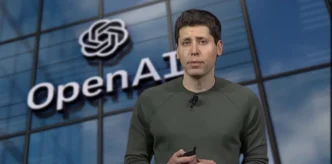Zach Yadegari, the teenage co-founder of the viral Cal AI app, recently shocked the internet. Despite a 4.0 GPA and an ACT score of 34, he was turned down by 15 of the 18 elite colleges he applied to.
He shared the news on X, where his post exploded with over 22 million views. Thousands of comments followed. Many pointed fingers at one possible reason: his essay.
Millions in Revenue, But No Ivy League Offers
Yadegari isn’t just a top student. He also happens to be a successful young founder. His app, Cal AI, tracks calories using artificial intelligence. According to him, it’s already bringing in millions and is on track for $30 million in annual revenue.
Although these earnings aren’t verified, app store stats show more than one million downloads and thousands of glowing reviews.
Cal AI wasn’t his first win either. He previously built and sold a gaming startup for $100,000 while still in school.

Why He Changed His Mind About College
Originally, Yadegari didn’t plan on attending college. He spent a summer at a hacker house in San Francisco building the Cal AI prototype. Surrounded by venture capitalists and startup mentors, he leaned into the “college dropout” tech founder image.
But that experience changed his perspective. He realized skipping college meant missing out on more than just school—it meant losing part of his life experience.
So he applied.
The Controversial Essay That Sparked Debate
In his essay, which he posted online, Yadegari explained his internal shift. He wrote about chasing success outside of school. He described how VCs and mentors had told him he didn’t need college. Yet, he came to see that even that advice locked him into someone else’s idea of success.
“In rejecting the college path, I adopted the dropout founder script,” he wrote.
His essay made it clear: he wanted to learn from people, not just YouTube and books. College, he said, would help him grow and amplify the work he had already started.
The essay ended with a message of purpose: college would help him create a larger, positive impact on the world.
Top Schools Still Said No
Despite strong academics and business experience, schools like Harvard, MIT, Stanford, Princeton, Columbia, and Duke passed on him. He was, however, accepted by Georgia Tech, University of Texas, and University of Miami.
Online, many said his essay felt “arrogant.” Others felt the system failed to recognize unique, real-world success.
One point stood out: colleges want students who are passionate about learning and likely to finish their degrees. Some said his essay sounded like he was only half-convinced that college was for him.
Y Combinator CEO Garry Tan also joined the conversation. He shared that he too faced college rejections after rewriting his essays under the influence of Ayn Rand’s The Fountainhead. That book’s individualist themes have long sparked debate. Tan eventually got into Stanford.
What Yadegari Thinks Now
Reflecting on the massive response, Yadegari admitted he’ll never know the real reason for his rejections. But he stood by the honesty of his essay.
“I wanted admissions officers to see the real me,” he said.
He also shared a personal insight: making money at a young age didn’t give him the fulfillment he expected.
“Life isn’t just about financial success,” he added. “It’s about relationships and being part of something bigger.”













